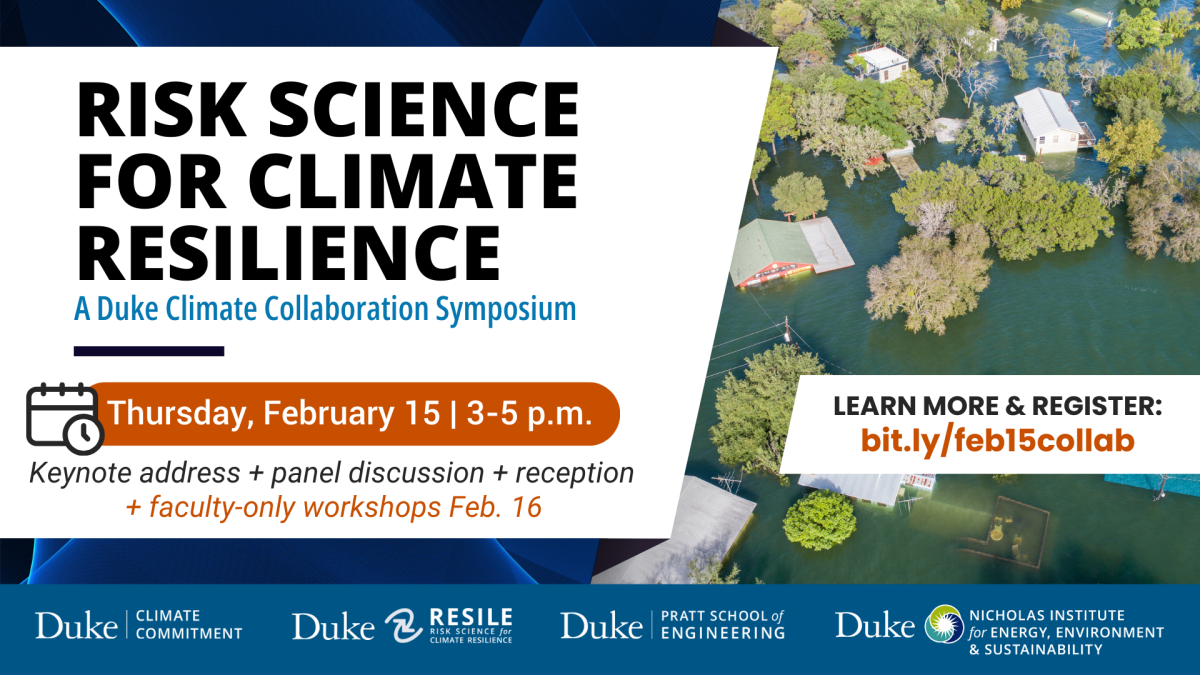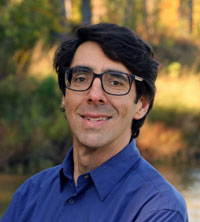About
Climate change poses multiple, interacting risks to the well-being of humans and the environment that are only expected to intensify with additional warming. While reducing greenhouse gas emissions must remain the primary policy goal, it is increasingly likely that global warming will exceed the targets specified in the Paris Agreement. Humanity urgently needs new approaches to managing climate risks—we can no longer rely on emissions reductions alone.
This two-day symposium will bring together the Duke community and experts from the public and private sectors to explore the essential roles that the insurance and finance sectors can play in addressing future climate risks. These sectors are unique in their ability to assess and price risk, allocate capital, offer financial protection, and influence risk-related behavior.
Topics covered at the symposium will include:
- Insurance innovations to advance climate justice and community resilience
- Use of finance and financial technologies to accelerate climate hazard mitigation and adaptation
- Risk model and data dissemination to support public sector resilience
A keynote address and panel discussion on Thursday, Feb. 15, will be open to the Duke community and the public.
Frank Nutter (President, Reinsurance Association of America) will deliver the keynote.
Watch introductory remarks and keynote
The panel will feature:
- Francis Bouchard, Climate Leader in Residence at Duke University and Managing Director, Climate, Marsh McLennan
- Allison DeJong, Planner, The Water Institute
- Roger Grenier, Senior Vice President, Global Resilience Practice, Verisk
- Mahmoud Raya, Associate Director in the Financial Institutions, Energy, and Climate and Sustainability Practices, Boston Consulting Group
- Moderator: Lydia Olander, Program Director, Nicholas Institute for Energy, Environment & Sustainability, Duke University
A networking reception will follow. Space is limited; advance registration required.
In addition, Duke faculty, research staff, and invited participants from outside the university will take part in a workshop on Friday, Feb. 16, to explore opportunities for future collaboration on climate risk, insurance, and finance. Duke faculty and research staff interested in joining the Feb. 16 workshop should register here—the form will also allow you to sign up for the Feb. 15 event.
If you are a Duke faculty member who wishes to recommend a postdoctoral researcher or advanced-level student for participation, please contact Mark Borsuk (mark.borsuk@duke.edu) with the request.
About the Organizers and Event Series
This event will launch the Duke Climate Collaboration Symposia, a series of on-campus convenings designed to accelerate climate solutions by developing new collaborations among Duke scholars and external partners. Each symposium will focus on identifying opportunities for Duke University to make the most of its interdisciplinary expertise and convening power for meaningful impact on climate challenges. The series is funded by a gift from The Duke Endowment in support of the Duke Climate Commitment, which unites the university’s education, research, operations, and public service missions to address the climate crisis.
The “Risk Science for Climate Resilience” symposium is organized by RESILE (a new university-wide initiative to advance research related to climate risk, based in Duke’s Pratt School of Engineering) and the Nicholas Institute for Energy, Environment & Sustainability.










